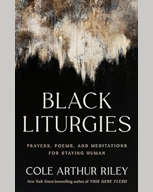Last week as Gaza encampments were popping up at major universities – protesting American support of Israel’s war on Palestine – Facebook Memories served up a post from my days as a high school English teacher.
In the post, I was telling this story: One of the juniors in my rhetoric class had decided to give a speech critiquing consumerism at an open-air mall in Pasadena. A small crowd gathered that afternoon, and about a minute into his speech, mall security arrived and shut him down. He asked why and was told that he could not give his speech on private property.
I don’t remember if I turned this interruption into a teaching moment right then and there, but the lesson was: private property can be a powerful arm of the status quo.
The student compliantly walked down a flight of stairs to the public sidewalk and picked up where he left off.
As an educator, I was always encouraging my students to resist and teaching them to do so peacefully. Resistance is — or should be — the natural order of things in a democracy. The friction of resistance shapes our ethics and forges our true path – and that goes for people and for nations.
Resistance is not violence, but when it is treated like violence — when police in riot gear march in — one thing is certain: forces are being called in to preserve the status quo by any means necessary.
With all the complexities of these events, and all the ways they recall the antiwar protests of 1968 and (God forbid) the 1970 Kent State shootings, this is what I see: young people practicing democracy; student leaders bravely changing the literal face of American activism with keffiyehs and head scarves; the margins gathering, recognizing the intersectional injustices that knit them together.
That last item, the margins gathering together, has marked low points in history before: the situation in occupied Palestine days before Jesus’s crucifixion; the last campaign of Martin Luther King, Jr., which called capitalism into question and led to his assassination on April 4, 1968; the Rainbow Coalition of Fred Hampton, founded on the one-year anniversary of MLK’s death and just seven months before Hampton’s own murder by Chicago police in collusion with the FBI.
Whatever we do in this moment, we have to do better.
 Resistance is a holy act supported by the world’s religions, and Frederic and Mary Ann Brussat offer this compendium of quotes, prayers, and practices to support you on this path.
Resistance is a holy act supported by the world’s religions, and Frederic and Mary Ann Brussat offer this compendium of quotes, prayers, and practices to support you on this path.
 Cole Arthur Riley offers this prayer for “Before a Protest,” addressed to a God who still “speaks against exploitation and oppression.”
Cole Arthur Riley offers this prayer for “Before a Protest,” addressed to a God who still “speaks against exploitation and oppression.”
 For students ready to plan resistance in their communities, Aizaiah Yong offers these resources for building peace, justice, and democracy.
For students ready to plan resistance in their communities, Aizaiah Yong offers these resources for building peace, justice, and democracy.
 If your student days are long past, consider getting involved with Bill McKibben’s Third Act, a movement founded specifically for Americans over 60.
If your student days are long past, consider getting involved with Bill McKibben’s Third Act, a movement founded specifically for Americans over 60.
- See more Spiritual Resources for the U.S. Election Year.
- To receive these weekly features in your inbox on Mondays, subscribe to the Practicing Democracy Project email list here.
